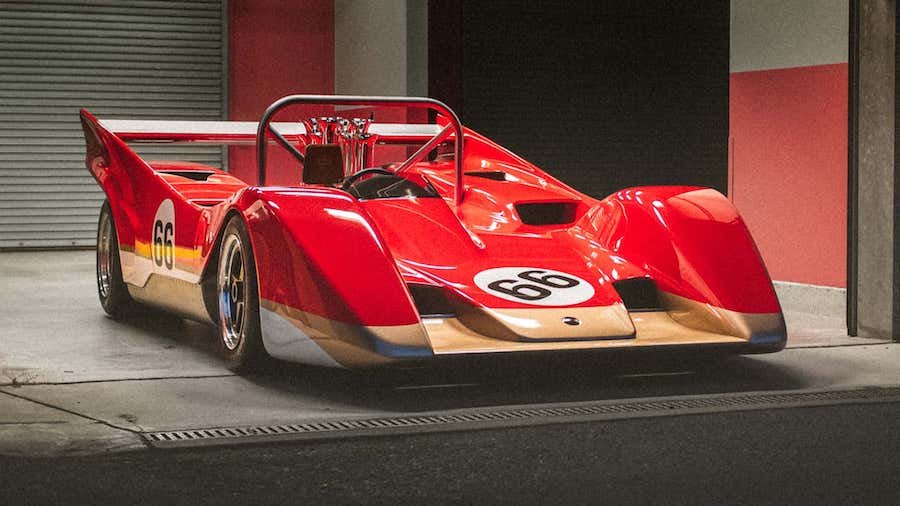Lotus Type 66: long-lost racer revived with 830bhp V8

The Lotus Type 66 is the first in a series of ultra-exclusive, historically accurate creations based on ‘long-lost’ designs that never saw the light of day.
As exclusively reported by Autocar last year, the newly established Lotus Advanced Performance division aims to bring to reality a series of concepts that never progressed beyond the drawing board.
It will use modern materials, techniques and components to build these models – using designs and plans from Lotus’s archive – in limited numbers and at high cost.
As the first to be officially revealed, the outlandish Type 66 establishes exactly how Lotus will approach the conception of these retro-modern creations.
The original Type 66 was commissioned by Lotus founder Colin Chapman with an eye on entering the bombastic Can-Am racing series in 1970.
However, Chapman’s focus on Formula 1 meant the project never progressed beyond technical drawings and scale models by Geoff Ferris, who would go on to design a series of racers for Brabham and Penske.
Had the car made it to the grid, it would likely have been driven by two-time F1 champion Emerson Fittipaldi, said Clive Chapman, son of Colin and managing director of Classic Team Lotus.
He added that the Type 66 would have shared its design philosophy with the Type 72 F1 car, using side-mounted radiators to improve aerodynamics.
The racer was recreated digitally using a series of 1:4- and 1:10-scale drawings provided by Chapman and then modified to meet modern safety standards.
Changes include in-boarding the fuel cell and adding a fixed rollover bar.
Lotus has also tweaked the design to improve driveability, adding a sequential gearbox with a multi-plate clutch, an anti-stall system and a reverse gear. Power steering and a race-honed anti-lock braking (ABS) system also feature.
The Type 66’s body is made entirely of carbonfibre, draped over an extruded and bonded aluminium chassis – the same concept that Lotus has used for its sports cars since the S1 Elise of 1996.
Power comes from what Lotus called a “period-representative” pushrod V8 – understood to be based on a Chevrolet crate motor – targeting outputs of 830bhp at 8800rpm and 550lb ft at 7400rpm.
The top five finishers in the 1970 Can-Am championship all used pushrod V8s supplied by Chevrolet, of varying displacements, with reputed outputs in the region of 700-800bhp.
The result for the Type 66, Lotus claims, is on-track pace comparable with modern GT3 sports-car racers.
Only 10 examples of the Type 66 will be built – a nod to the 10 rounds in the 1970 Can-Am season – at a cost “in excess of £1 million”.



Nouvelles connexes


